The interview process is one of the most vital stages of your recruitment process. It’s the stage where you can sit down with your candidates face-to-face and really get to know them. Don’t you want to get the most out of this stage? After all, you only have a limited amount of time to properly grill your potential Finance Directors.
Conduct Thorough Interviews
As such, you need to know how to probe your candidates. You should know what kind of Finance Director interview questions to ask in order to get the most useful information. You don’t want your interviews running too long, so there’s only a set amount of questions you can ask. Choose wisely.
For director-level positions, you need to be as thorough as possible at the interview stage.
This means making use of multiple stages, each offering a different structure and goal. Don’t assume one interview is enough. Trying to fit too much into one interview can be tiring and doesn't yield the best results.
Split your interviews into stages and decide on a unique structure for each. For example, one stage might be more informal and personality based whilst another focuses on technical knowledge/skills. One stage might focus on back and forth dialogue, whilst another could follow a strict question and answer format with added tasks.
You’ll want to get the best impression of your candidate. Try using a mix of technical and personality-based questions to get the best judgement.

To help you make the most of this stage, we’ve listed our Top 10 Finance Director interview questions and answers;
1 – What makes you different from every other Finance Director? What’s the strength that makes you stand out?
Your candidate deserves the chance to separate themselves from the crowd. Of course, if you’re taking the candidate to interview stage, they’ve already stood out. But this gives them the opportunity to sell themselves.
Essentially, it’s a chance for the candidate to give you a summary of themselves, their skills and experiences, and what they can bring to the business. Let your candidates acknowledge their own strengths and how they apply them to the role.
2 – What has been your biggest success in finance? How did you achieve it and why is this your biggest success?
This question regards not only proof of achievements, but also methods and perception skills.
Achievements are a great way of demonstrating quality work. Candidate experience is only relevant if they have sufficient achievements to back it up. They show what a candidate is capable of. They’re solid proof that the candidate can achieve quantifiable results and have a positive effect on their company.
Your candidate’s biggest achievement should tell you the heights they reached in their last business, and give you an idea of what they can do in yours given your resources.
You should encourage candidates to explain exactly how they achieved this, what input they had which directly led to success. The methods employed are often just as important as the achievement itself.
It’s also important to inquire why the candidate considers this success to be their greatest. This gives you an impression of their perception of their achievements, as well as what entails success. Finding out why the candidate believes this to be their greatest success indicates what their motivations and goals are.
3 – What is your greatest technical strength?
Every candidate for every role no matter what department, industry, or level of seniority should understand what their strengths and weaknesses are. This question goes a bit more specific, inquiring about technical strengths.
This means you won’t be looking for ‘soft’ answers like “I’m extremely determined/hard-working”. Instead, you’ll be looking for technical competencies such as particular proficiency in executive skills or FD specific skills. Examples of ideal answers might be, “I’m extremely proficient in budgeting/team skill development”.

A great positive of this question is that you can follow it up by asking for proof. For example “How are you proficient in this? Could you provide examples of your strengths in practice?”.
Quantifiable answers are always preferable. Not only does it give you a more measurable idea of the candidate’s strengths and skills, it also allows for easier comparison between candidates.
4 – What has been your biggest challenge in finance? How did you tackle it?
Everyone faces challenges in the workplace. They’re unavoidable. The key is how you adapt and face these challenges.
Great candidates are able to take challenges in their stride and face them with confidence. They’re able to make fast but well thought out decisions that address the problem to the best of their ability.
The best Finance Directors find solutions to problems. They take accountability themselves, as well as their finance teams, other employees, and the business as a whole. They know that their decisions can affect everyone, and keep a cool head when taking charge and delegating responsibilities.
Ask your candidate to name the biggest challenge they’ve faced in finance. The value in this question is in the follow-up questions. How did this challenge manifest? Was it preventable? How did they tackle it and overcome the challenge? What did they learn from it and have they applied this experience in later challenges?
By doing this you can get a good gauge of character, as well as finding out how the candidate reacts under pressure. You need your Finance Director to thrive in tough situations, so their answer to this is vital.
5 – How do you assess a business/department’s success? What metrics do you use to track progress?
Accurate assessment is one of the key factors in financial success. Your Finance Director should be able to perform insightful assessments on their own performance, as well as the success of the financial departments and the business as a whole.
What defines success to your candidate and how do they go about assessing it? What metrics do they use to determine the department/business’s success? Why do they use these metrics, what can they tell you? Does this differ from how your current/previous Finance Director operated? This is useful for gauging how well your candidate will fit into your business..
6 – Do you make the most of new technology to improve your practices? How do you do this?
The modern Finance Director needs to make the most of the latest technology. Technological advancements have opened up a lot of new possibilities for enhanced financial business practices. But to take advantage of these advancements, you need to keep abreast of new technology and software.
Candidates who are able to take advantage of modern technology to improve their business practices are forward thinking. These are the candidates that will bring innovation to your finance division and constantly strive to improve your business.
Ask them what new technologies they’ve taken on board. How did they discover them? How did they apply its uses to everyday finance management? Could they use these applications in your business?

7 – Why do you think you’re a perfect match for our company and our values?
Successful senior recruitment is all about finding the right match. You can find candidates who're skilled on paper. But if they aren’t a good match for your business and your finance department, they won’t be ideal. You need to find someone who fits your business to a T. They need to fit both culturally and structurally.
Asking your candidate about this allows them to show their knowledge of your business and values.
Quality senior candidates know the business inside and out. They’ve done their research on you and feel like they’d be perfect for you. They share the same values and feel like they can help implement your vision.
This is the main opportunity for candidates to sell themselves to you. They can tell you why they’re perfect for your business. Don’t ignore the importance of business and culture fit.
8 – What long-term effects have you had on your current/previous businesses?
Quality Finance Directors should leave a lasting impression on their business. They should be thinking towards the future of their business and be implementing plans to continually improve business practices.
Ask your candidates what lasting impression they’ve left on their business? What long-term positive effects have they left? How have they promoted growth and development in their finance teams and beyond? What financial problems and challenges have they solved? This gives a great impression of their abilities, and what they could do for your business.
9 – What’s the number one most important aspect of successful budgeting?
This question delves into your candidate’s priorities. Every Finance Director will have a different idea of what the most important aspect of financial management and budgeting is. Ultimately, there's no one answer. The most important aspect is the one that works best for them, and the one they’ve found the most success with.
Especially for small businesses and companies with tight finances, quality budgeting is vital. Your candidates should know how to manage and distribute finances to facilitate success whilst maximising profits and money saved.
10 – Can you name a situation where you’ve helped members of your finance team develop their skills?
One of the key responsibilities of a Finance Director is managing and developing their finance teams. Your FD shouldn’t just oversee the division, they should nurture them and help them grow, develop their abilities, and improve team performance.
Inquire about your candidate’s relationship with their finance team. How did they go about managing them? Did they hold a close, hands-on relationship, or a distant one? In what ways did they nurture them and help them develop their skills?
Top Tips For Your Finance Director Interview Questions
Don’t be hesitant to venture outside of rigid Finance Director interview questions and answers. Your interview process should be creative and flexible. Test your candidates in different ways.
Use roleplay to gauge situational ability. Give your candidates example scenarios and ask what they would do. This is one of the best ways of testing your candidate’s ability to act in accordance with your business's vision.
You need to be sure that your Finance Director knows how to conduct themselves in different situations. This can also be useful for measuring candidates’ decision-making abilities.
Create a dialogue! Give your candidates chance to show personality. Allow them to speak with you more naturally. This will give you a much more realistic impression of their personality and communicative ability.
What Questions Do They Have For You?
Remember to leave a chance for the candidate to ask you questions at the end of the interview. For senior roles such as Finance Director, your candidates are bound to have a number of questions about your business and your opportunity. You’re doing your candidates a disservice by not affording them the opportunity to inquire.
Remember that an interview isn’t just one-sided. It’s a chance for the candidate to get an impression of your business, so you want to give the best impression possible. Be prepared to answer specific questions regarding the role and the nature of your business.
Of course, you don’t have to answer all your candidate’s questions. But being too vague during the interview process can turn potentially great candidates away.



